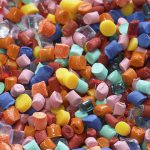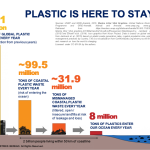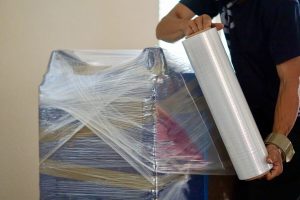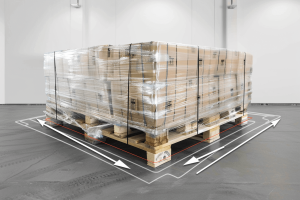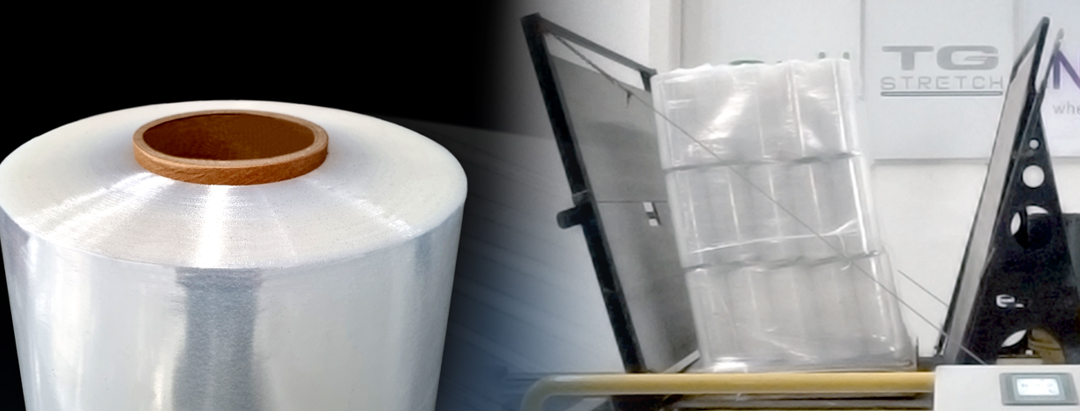
Recycled plastics in stretch films have their fair share of misconceptions.
However, as a dedicated converter and manufacturer of stretch films, it is vital that we not only debunk the misconception.
But also to prove that recycled films work through our quality films production.
If you have been following our #RecycledPlasticSeries, you should know by now that quality recycled films pretty much relies on the following vital factors.
- Recycled materials: Minimal contamination, types of recycled materials (PCR or PIR), and more
- Resins mix & film requirements formula: The different film requirements to achieve your application needs
- Rigorous testings & adjustments: It takes more than just meeting the requirements but also the R&D efforts invested in ensuring the films meets specific quality standards
- Application testings: To ensure consistent results
Ultimately, the reason is simple—Thong Guan wants to help our valued customers to achieve their Environmental, Social and Governance (ESG) and sustainability goals while retaining their brand promise to their clients.
Introducing NanoGreen
With all the talks revolving around sustainability, we know that at the end of the day, the longevity of our business ecosystem very much relies on two things—posterity and economics.
In line with Thong Guan’s continued drive to sustainability culture, we introduce our first thinnest (15 µm) recycled machine film with high containment force)—the NanoGreen.
The working zone
- Stretchability: 150% to 200%
- Final stretch thickness: 5 to 8 µm
- Machine speed: 12 to 40 RPM
NanoGreen beyond green—promoting load safety
If you must, here’s a low-down on what’s so great about NanoGreen.
- Contains 30% PIW (post-industrial waste)
- Nano ‘thin’ with 15-µm gauge green machine film within the working zone of 200% stretchability (vs market’s typical 23-µm machine film)
- Stiffer and more rigid to achieve high containment force that protects your goods
- Firm nano-film edges that reduce breakages incidents that may lead to your production line breakdowns
- Highly consistent film thickness that prevents easy snapping
Going green with more than just recycled materials
Thong Guan promotes load safety with NanoGreen.
That which contributes to waste reduction of unsaleables and road safety from questionable load containment—all of which impact your bottom line and sustainability goals.
- A sustainable solution to plastic wastage that helps you achieve your ESG (sustainability) goal through carbon footprint reduction
- NanoGreen will be ISCC Plus certified (from January 2022 onwards), which means you can be assured that NanoGreen is genuinely green for your sustainability purpose.
High containment force & load stability
Here’s a video of NanoGreen in action—tested on the acceleration bench at Newton Centre’s facility.
Potential Application Challenges
Transparency is a policy we hold dear to heart.
As such, you should know that there are potential challenges when working with recycled machine films.
Snapping Risks
The following term may come to mind when we mention recycled materials.
“Garbage in, garbage out.”
So we strive to ensure quality garbage goes in our production chain to give the waste a new purposeful life—as we have stressed in our previous articles of this series.
That being said, gels build-up is inevitable in recycled films.
Gels are pockets of unmelted resins (due to contamination in this context) that appear on extruded films.
Gels could potentially cause film tears and breaks.
That translates to possibly more production line breakdowns than pure virgin films due to packaging hiccups—that equals costing.
It is a potential scenario if you work with recycled film. That is why we have designed our film with strict processes and testing regiments, as much as possible, giving you quality films.
All this is to ensure our recycled materials are as clean as possible—free of contamination.
And to avoid the risk of film snapping, we are talking about applications with ring wrappers at 65 rpm and arm wrappers of 15 to 30 RPM.
We achieved consistent results of no snapping when we rigorously tested our NanoGreen at our partner’s facility—Newton R&D Centre.
Muddled Terminologies
Recycled materials in plastics are nothing new.
However, the technicalities revolving around producing packaging with recycled materials may still be fledgeling.
As we have covered in the first article of our #RecycledPlasticSeries: 1. Differences between PCR & PIR, post-industrial and post-consumer recycling can be somewhat confusing or often misconstrued.
Some legislation may use the term recycled materials, of which readers are unaware if that is referring to PIR or PCR or both.
However, both are contributing to sustainability.
Perhaps, as the green market matures, even more, we will see more inclination towards PCR, as post-consumer wastes contribute more carbon footprint than post-industrial wastes.
Until then, regardless of whether PIR or PCR, we will continue to work towards a more sustainable future for your business and our continuity in green efforts.
So, What’s Next?
As Thong Guan pursues the sustainability journey, you will see more #LoopClosers in our product range.
What this means to us is that we will continue to put our focus on PCW (post-consumer waste). This is to ensure we could include more PCW in stretch film production to increase our green efforts.
As mentioned, handling recycled materials requires more effort in ensuring they are free from contamination to produce quality films.
Therefore, the next time you hear the word ‘recycled’, never should the word ‘cheap’ or ‘low quality’ follow.
Thong Guan strives to bring quality into recycled materials in helping you achieve your film requirements.
Don’t just hear from us. Test out our NanoGreen today for yourself. Contact us at info@thongguan.com to get started.
This article is part of our #RecycledPlasticsSeries. You may access all the articles under this series by searching for #RecycledPlasticsSeries.

